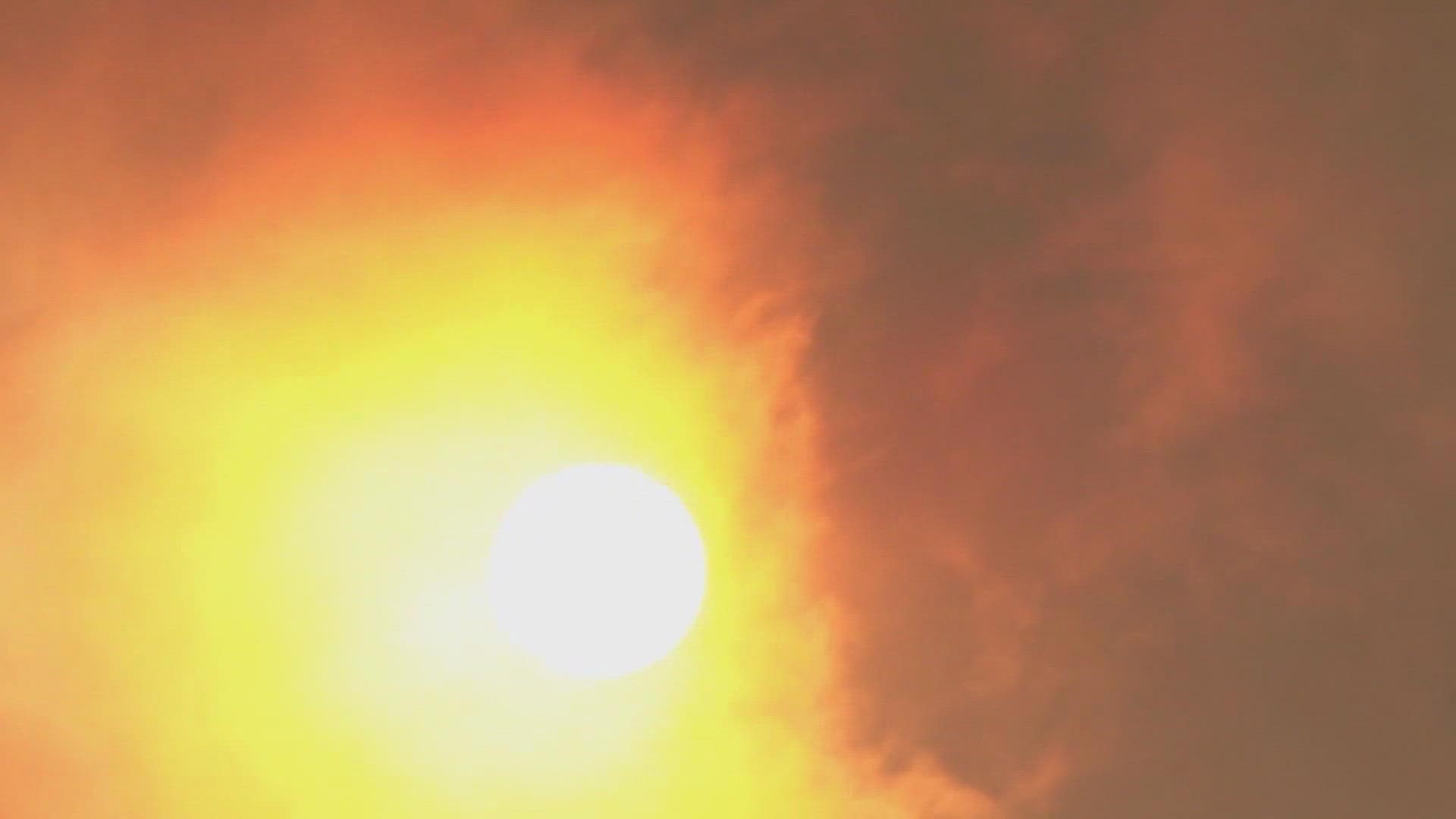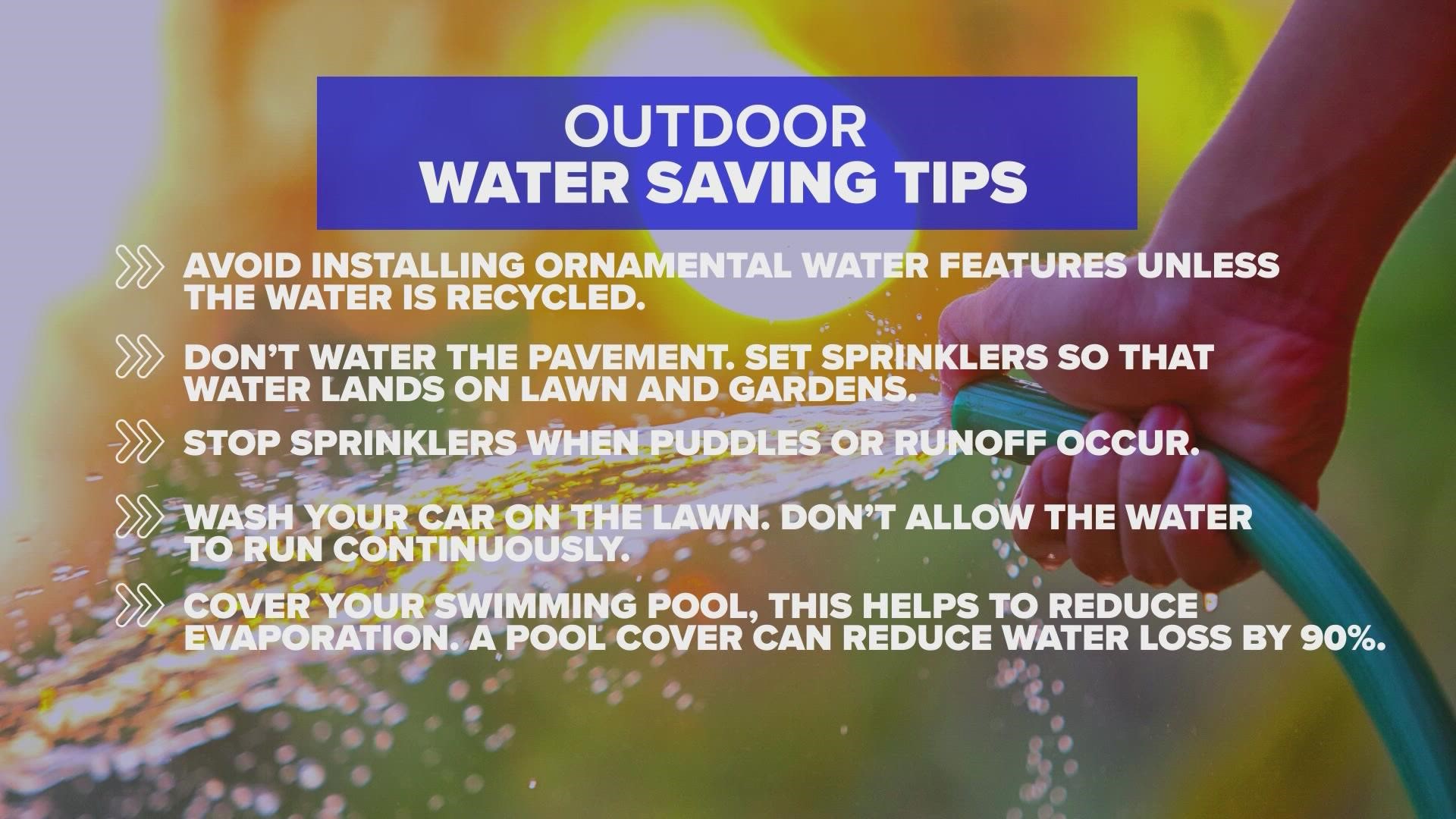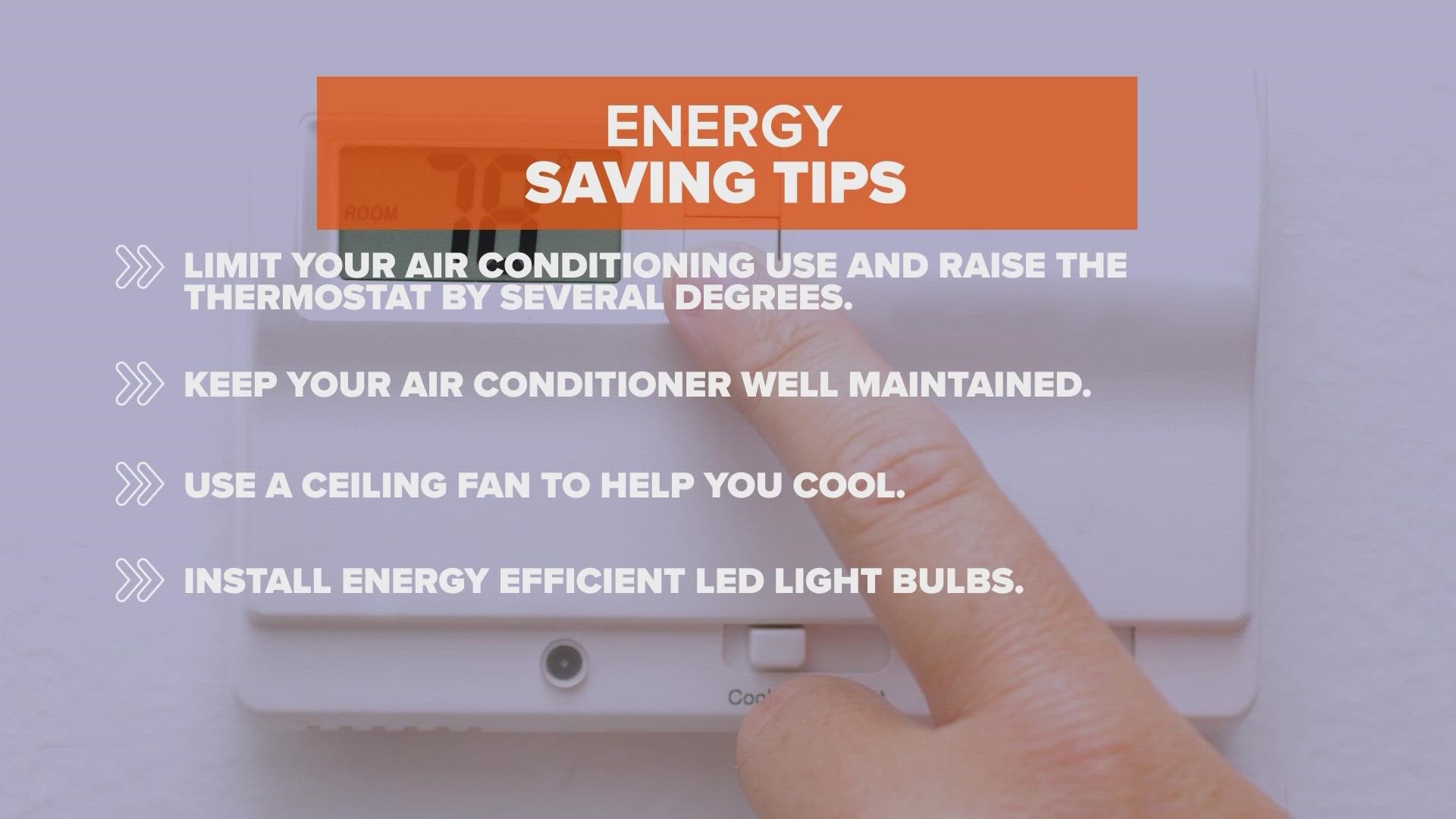SAN ANTONIO — Triple digit heat has arrived and is here to stay, at least for a while.
Extreme heat is nature's number one weather killer, but these deaths for the most part are preventable.
The City of San Antonio has several programs such as Project Call and weatherization of your home to help keep the house as cool as possible. You're able to find out more about those programs by calling 311. But for the day to day heat safety tips, the best way to prevent a heat illness is to stay cool indoors.
If you can't keep your house cool, go somewhere cooler like the many cooling centers across Bexar County. Pace yourself and cut down on outdoor exercise. Wear sunscreen and re-apply often with at least SPF 15. Stay hydrated. If you notice you are thirsty, you are already dehydrated. And check on those most vulnerable like seniors, young children, those who are overweight, and people who are sick.
Don't forget about your pets, they can get sick too.
"Make sure that your pets aren't out in the elements. I know the other day I was going down Broadway and I saw some people out at 4:00 in the afternoon walking their dogs. You know, if it's too hot for your bare feet on the on the pavement or the asphalt, it's definitely too hot for your pets to be out there. Also, their paws will burn," said George Perez, San Antonio Metropolitan Health's District Operations Manager.
Metro Health also says to check out the STEARs program which is a free registry for Texans of any age that needs additional assistance during an emergency event due to a disability, such as communication barriers or limited mobility. To sign up dial 2-1-1, or check out the link here.
Right now the J-17 aquifer which SAWS uses as the level to set watering restrictions is at stage two, which means you can only water in between 7 and 11 a.m. and 7 and 11 p.m. according to your address. They said we've never had to go to stage three where that watering is cut in half, but conservation of water will go a long way in helping us stay away from having to do that.
To save water outdoors avoid installing ornamental water features unless the water is recycled. Don't water the pavement, set sprinklers so that water lands on lawn and gardens. Stop sprinklers when puddles or runoff occur
Wash your car on the lawn. Don't allow the water to run continuously. Cover your swimming pool to reduce evaporation. A pool cover can reduce water loss by 90%.
To save water indoors, check your indoor water-using appliances and devices for leaks. The largest water user inside the home is the toilet. Install low flow aerators and showerheads. Don't let the water run while brushing teeth, shaving, or washing hands/face. You should also try to take shorter showers.
The running your washing machine or dishwasher only when full could save you hundreds of gallons a month.
"If you're watering by hand, running that faucet the whole time, which most of us do if we're hand-washing something that uses up a lot more water, dishwashers have gotten shockingly effective," said Karen Guz, the Senior Director for Conservation at SAWS. "But this is with the caveat that try not to water the dishes, water wash the dishes twice. Some people do that. They wash them once and then they run them through with the dishwasher."
As we approach the July 4th holiday fireworks become an issue with such dry fuels. Keep in mind there is a city ordinance code that prohibits the use and sale of fireworks in San Antonio city limits. You also need to acquire a permit for the use of fireworks.
Here are some energy saving tips for hot weather. Limit that air conditioning use and raise the thermostat by several degrees when you are not at home, but don't turn it off. It'll just have to work harder later. Keep your air conditioner well maintained and make sure to change the filter regularly. Use a ceiling fan to help you cool. Don't forget to turn them of when you leave the room.
Install energy efficient LED light bulbs. You'll not only save money but they won't give off heat like incandescent bulbs.
"If you can see daylight coming into your home at any point time from either your windows or cracks or leaks, air leakages, if you're getting any type of air leakage or you have solar heat coming into your home through the windows, hang some curtains, put up some blinds," said Christine Patmon, the CPS Energy Communications Director.
CPS Energy also advises not to use heat-generating appliances, especially during the peak of heating in the afternoon such as ovens or dishwashers. Anything you use that can create heat will heat up your home, making your AC unit work harder.



